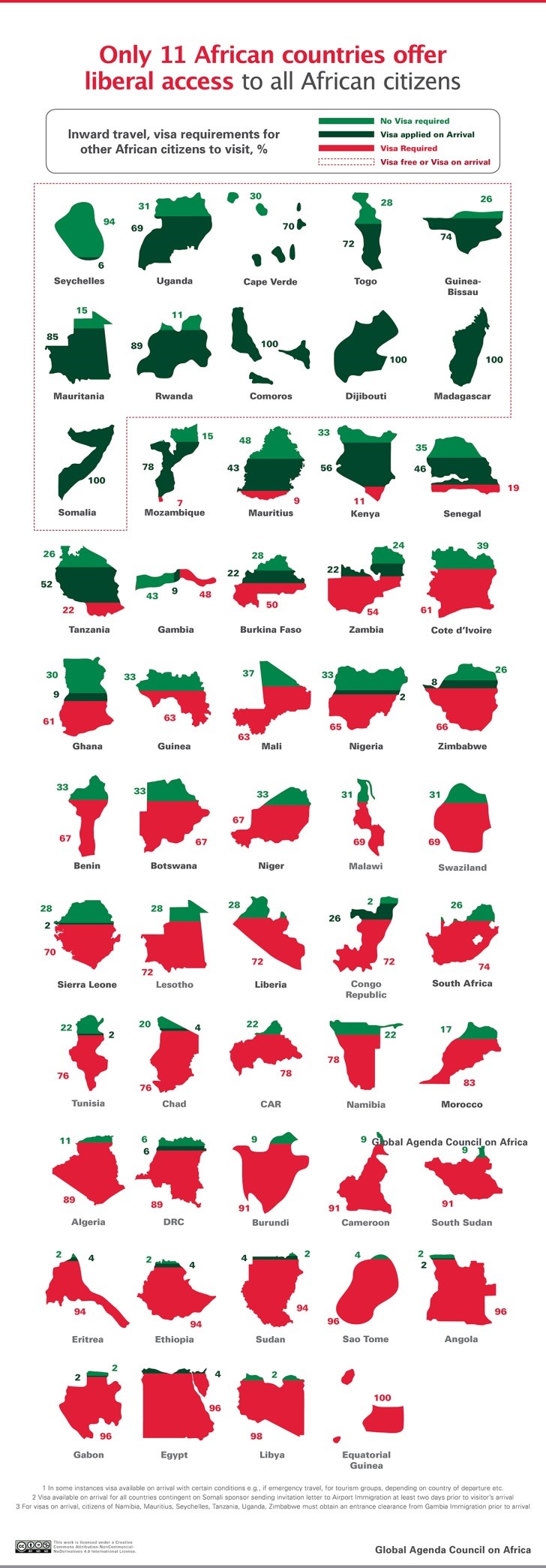How can we unlock Africa’s tourism potential?
With a projected growth of 3.7% in 2015 and accounting for nearly 9% of the continent’s GDP, Africa’s travel and tourism industry has incredible potential to help generate growth, create jobs and enable development. Yet, this potential remains largely untapped.
Indeed, African countries continue to remain largely closed off to each other as a result of policies and the lack of physical connectivity making travel on the continent difficult. This can explain in part why in 2014, Africa only welcomed 4.9% of international visitors, or 56 million people.
With the global tourism industry forecasted to grow at 4-5% per annum in the coming years, Africa is most definitely missing out, not only from global travel but from intra-African travel, despite its incredible natural resources and heritage. Africa’s population is expected to continue growing, and is forecasted to account for one in four people on earth by 2050. According to Deloitte, the African middle class will grow to 1.1 billion (42%) by 2060.
Source: UNWTO: Tourism Highlights, 2015 Edition
To maximize Africa’s tourism potential, the continent must invest in transport infrastructure to enable connectivity and accessibility, whilst countries must adapt their policies to facilitate travel. According to research, today Africans need visas to travel to 56% of other Africa countries, up from 55% in 2014. At the same time the visa requirements have also become slightly more stringent for non-Africans to travel to Africa. North Americans require visas to visit 45% of African countries, whilst citizens from western European Union states require visas for 58% of African nations.
The graphic below, developed by the Global Agenda Council on Africa, shows visa requirement differences across the continent. It’s obvious that there are large differences between nations. Only 11 countries offer visa free or visa on arrival access to citizens of all African countries, including. Of all African countries, Senegal is the most improved, now offering liberal access to 81% of Africans, up from 37% in 2014. On the other hand, Equatorial Guinea is now the only country left in the African continent which requires every single African citizen to apply for a visa.
The 2015 edition of the Travel & Tourism Competitiveness Report shows that African countries have the opportunity to reap the full benefits of a vibrant travel and tourism industry.
In 2014, during the World Economic Forum on Africa, a call to action to push forward travel facilitation and talent mobility in Africa was signed by President Kagame from Rwanda, President Uhurru Kenyatta from Kenya and former Prime Minister Moussa Mara from Mali. Despite the setback resulting from Ebola, many African nations are still committed to pursuing this agenda. Together we aim to increase awareness on the benefits of seamless travel and talent mobility, showcase the success stories on the African continent and encourage other countries to join the call to action and change their policies accordingly.
To achieve this agenda, specific recommendations are supported by the Future of Travel & Tourism and the Africa Global Agenda Council. Firstly, African nations should consider the simplification of visa application processes and pursue the implementation of visa on arrival programmes, similar to those of Rwanda and Mauritius. Similarly, offering multi-year visas following the vetting of applications should be assessed. Such solutions have successfully been implemented by the UK and the US.
Secondly, positive reciprocity between countries should be encouraged. This would entail nations which have relaxed visa requirements benefiting from similar requirements when visiting other African countries.
Finally, the African continent should also push for the creation and scaling of visa-free regional blocks. Not only should regional blocks follow the ECOWAS model, but the African continent should consider the implementation of a continent-wide visa block similar to Schengen. While the idea of a global passport may not happen overnight, African states should think big and consider how to create an “Africa Passport”. Such a passport could truly bring Africa together by enabling all Africans who meet a set of key requirements to travel freely across the continent.
The Summit on the Global Agenda 2015 takes place in Abu Dhabi from 25-27 October.
Authors: Tiffany Misrahi, Community Lead, Aviation & Travel Industries, and Patrick McGee, Community Lead, Regional Strategies, Africa, World Economic Forum
Image: Rooftops of Rabat’s Medina are seen from atop a hotel that is being reconstructed September 25, 2014. REUTERS/Damir Sagolj
Don't miss any update on this topic
Create a free account and access your personalized content collection with our latest publications and analyses.
License and Republishing
World Economic Forum articles may be republished in accordance with the Creative Commons Attribution-NonCommercial-NoDerivatives 4.0 International Public License, and in accordance with our Terms of Use.
The views expressed in this article are those of the author alone and not the World Economic Forum.
Forum Stories newsletter
Bringing you weekly curated insights and analysis on the global issues that matter.


